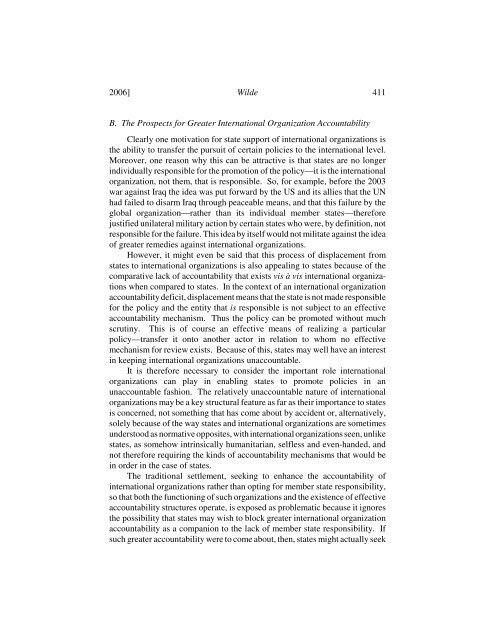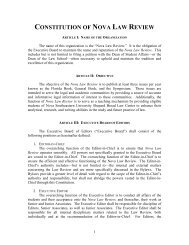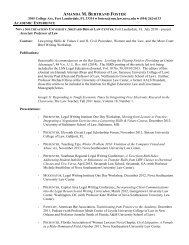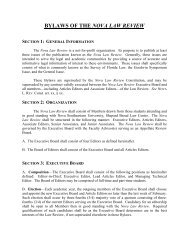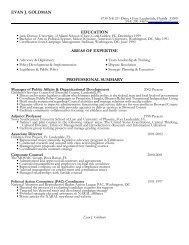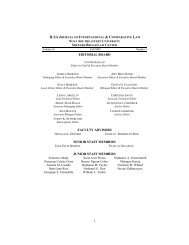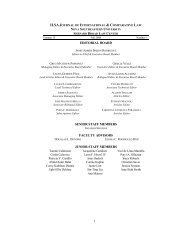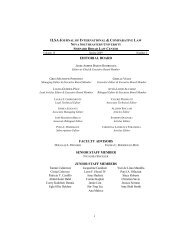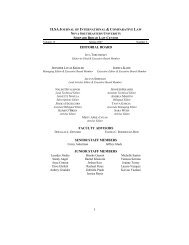Volume 12:2 - Shepard Broad Law Center - Nova Southeastern ...
Volume 12:2 - Shepard Broad Law Center - Nova Southeastern ...
Volume 12:2 - Shepard Broad Law Center - Nova Southeastern ...
Create successful ePaper yourself
Turn your PDF publications into a flip-book with our unique Google optimized e-Paper software.
2006] Wilde 411B. The Prospects for Greater International Organization AccountabilityClearly one motivation for state support of international organizations isthe ability to transfer the pursuit of certain policies to the international level.Moreover, one reason why this can be attractive is that states are no longerindividually responsible for the promotion of the policy—it is the internationalorganization, not them, that is responsible. So, for example, before the 2003war against Iraq the idea was put forward by the US and its allies that the UNhad failed to disarm Iraq through peaceable means, and that this failure by theglobal organization—rather than its individual member states—thereforejustified unilateral military action by certain states who were, by definition, notresponsible for the failure. This idea by itself would not militate against the ideaof greater remedies against international organizations.However, it might even be said that this process of displacement fromstates to international organizations is also appealing to states because of thecomparative lack of accountability that exists vis à vis international organizationswhen compared to states. In the context of an international organizationaccountability deficit, displacement means that the state is not made responsiblefor the policy and the entity that is responsible is not subject to an effectiveaccountability mechanism. Thus the policy can be promoted without muchscrutiny. This is of course an effective means of realizing a particularpolicy—transfer it onto another actor in relation to whom no effectivemechanism for review exists. Because of this, states may well have an interestin keeping international organizations unaccountable.It is therefore necessary to consider the important role internationalorganizations can play in enabling states to promote policies in anunaccountable fashion. The relatively unaccountable nature of internationalorganizations may be a key structural feature as far as their importance to statesis concerned, not something that has come about by accident or, alternatively,solely because of the way states and international organizations are sometimesunderstood as normative opposites, with international organizations seen, unlikestates, as somehow intrinsically humanitarian, selfless and even-handed, andnot therefore requiring the kinds of accountability mechanisms that would bein order in the case of states.The traditional settlement, seeking to enhance the accountability ofinternational organizations rather than opting for member state responsibility,so that both the functioning of such organizations and the existence of effectiveaccountability structures operate, is exposed as problematic because it ignoresthe possibility that states may wish to block greater international organizationaccountability as a companion to the lack of member state responsibility. Ifsuch greater accountability were to come about, then, states might actually seek


